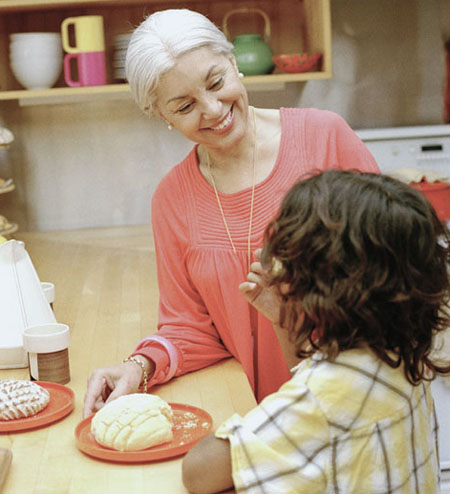by Dr. Ken Canfield
Many of you know that I have spent a majority of my life researching, writing and speaking to fathers about being more engaged in their kids’ lives. And one key, research-based fathering fundamental is a great one for grandparents to learn and embrace as well:
Awareness: knowing specifics about each of your grandkids.
We can all appreciate that each grandchild is a marvelous creation, uniquely gifted in incredible ways. But if we’re going to help nurture them and meet their needs, we need to know how they are unique. We need to take into account each child’s changing level of maturity, emotional makeup, intellectual capacity, and individual needs of each of our children.
Maybe one grandchild is more verbal, while another is action-oriented. One likes to push her parents’ boundaries and another is content to fall in line with what they want. One might feel loved through verbal affirmations. Another might just want to be held and comforted.
If it sounds like a constant learning process, it is—but it’s such an enjoyable one!
And when we’re equipped with a deeper awareness of who our grandchildren are, what makes them tick and how they perceive the world, it gives us much more confidence as grandparents. We’ll know we’re on the right track as we try to create closer bonds with them and help lead, challenge and encourage them.
And what’s great as grandparents is that we usually have natural partners in this process—our spouse, the children’s parents, and possibly others. So I suggest you have regular conversations with those people about what you’re noticing in your grandkids and how each one is expressing some unique traits. You could start with questions like this:
- How would you describe this child as a person?
- What kind of thinker or learner is he?
- How would you describe her as a student? As a reader and a writer?
- What activities, sports, careers or causes is he passionate about?
- What are her biggest fears or challenges right now? What big events are coming up in the next six months for her?
Keep asking these and similar questions, at least every year or so. And maybe add a few:
- In what ways has your grandchild changed and grown?
- Are there things others have noticed that you haven’t?
These can be planned, sit-down discussions between grandparents, but they can also be regular talking points with your grandkids’ parents when you’re together. They know you’re interested in your grandkids, so it won’t seem out-of-place to ask, “What are Emma’s biggest challenges in school right now?” You’ll benefit from what they’re seeing in their children, and your observations will be valuable for them as well.
And some questions are great to ask directly to your grandchild. Maybe you can come up with five good “What if …” or “What’s your favorite …” questions and then find a time to ask them, one-on-one.
I hope you can see that awareness can be a great benefit as you relate to your grandchild. It’s something we should be pursuing, so all our grandparenting actions are informed by solid “research.” And it’s some of the most rewarding research there is.
What’s your experience? Do you regularly have these kinds of conversations about your grandkids? Share your thoughts at our Facebook page.





